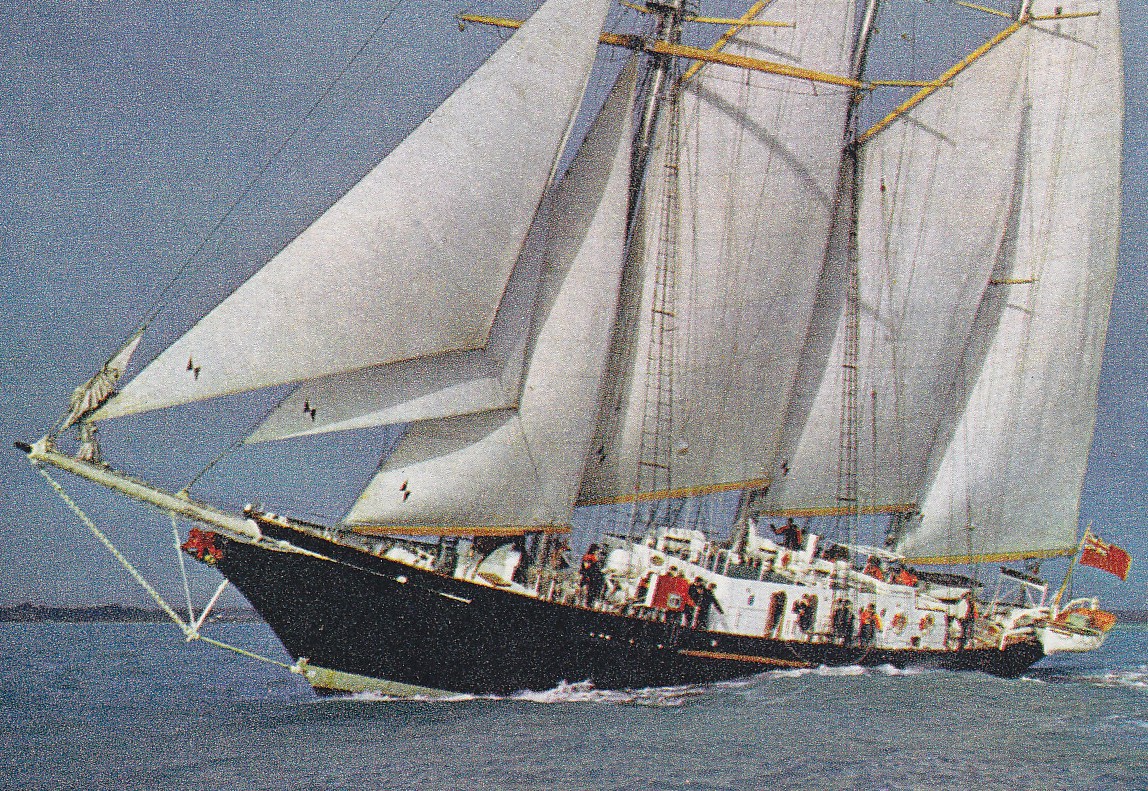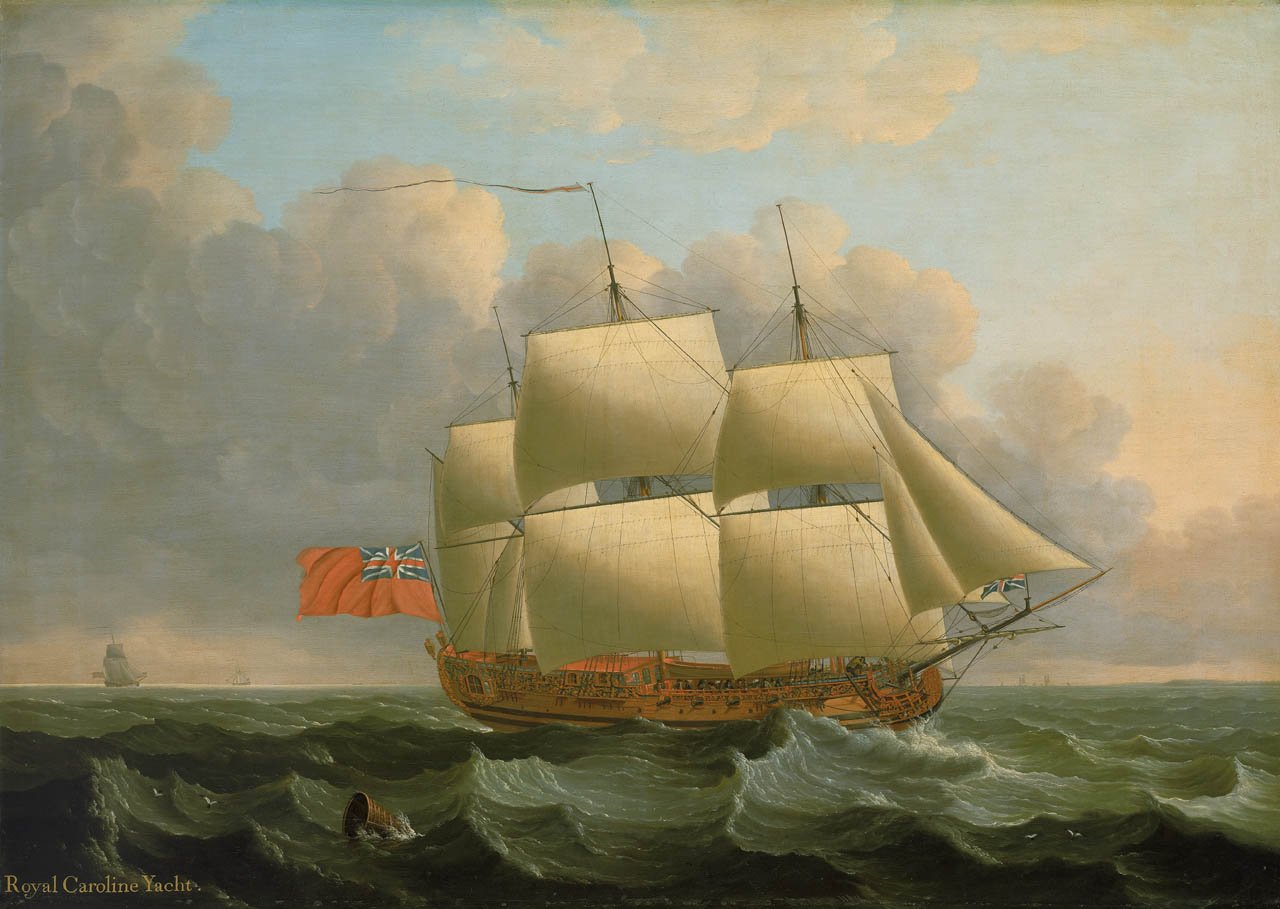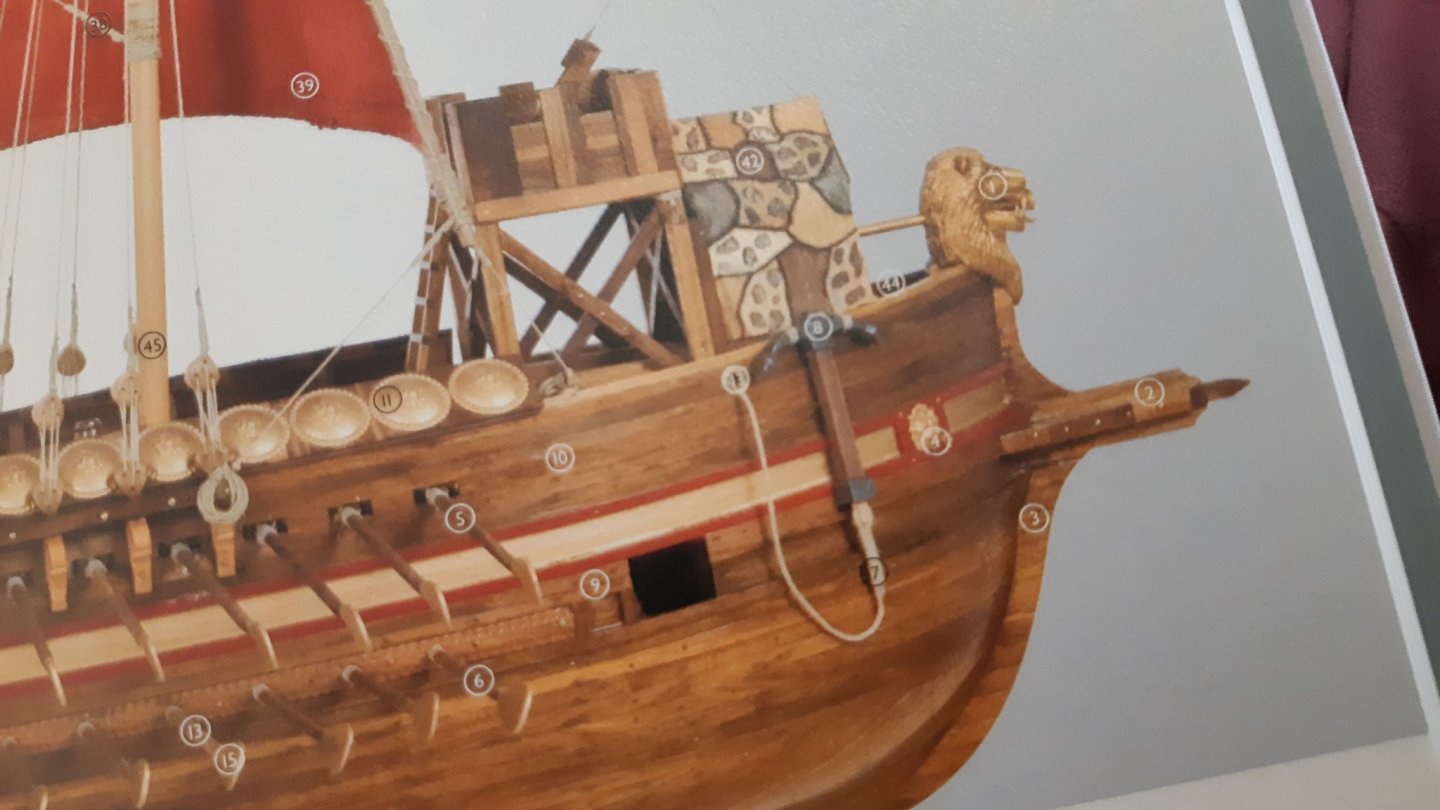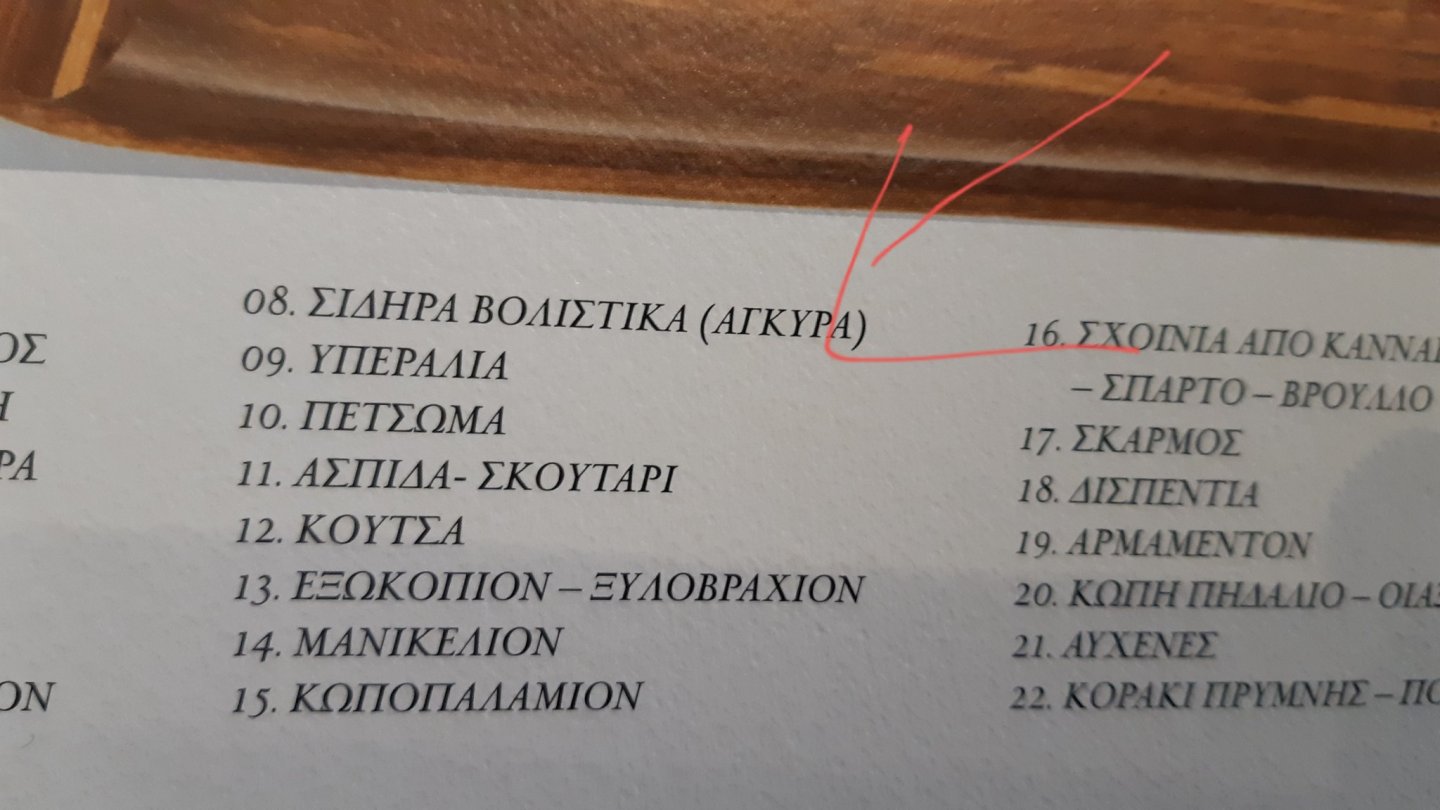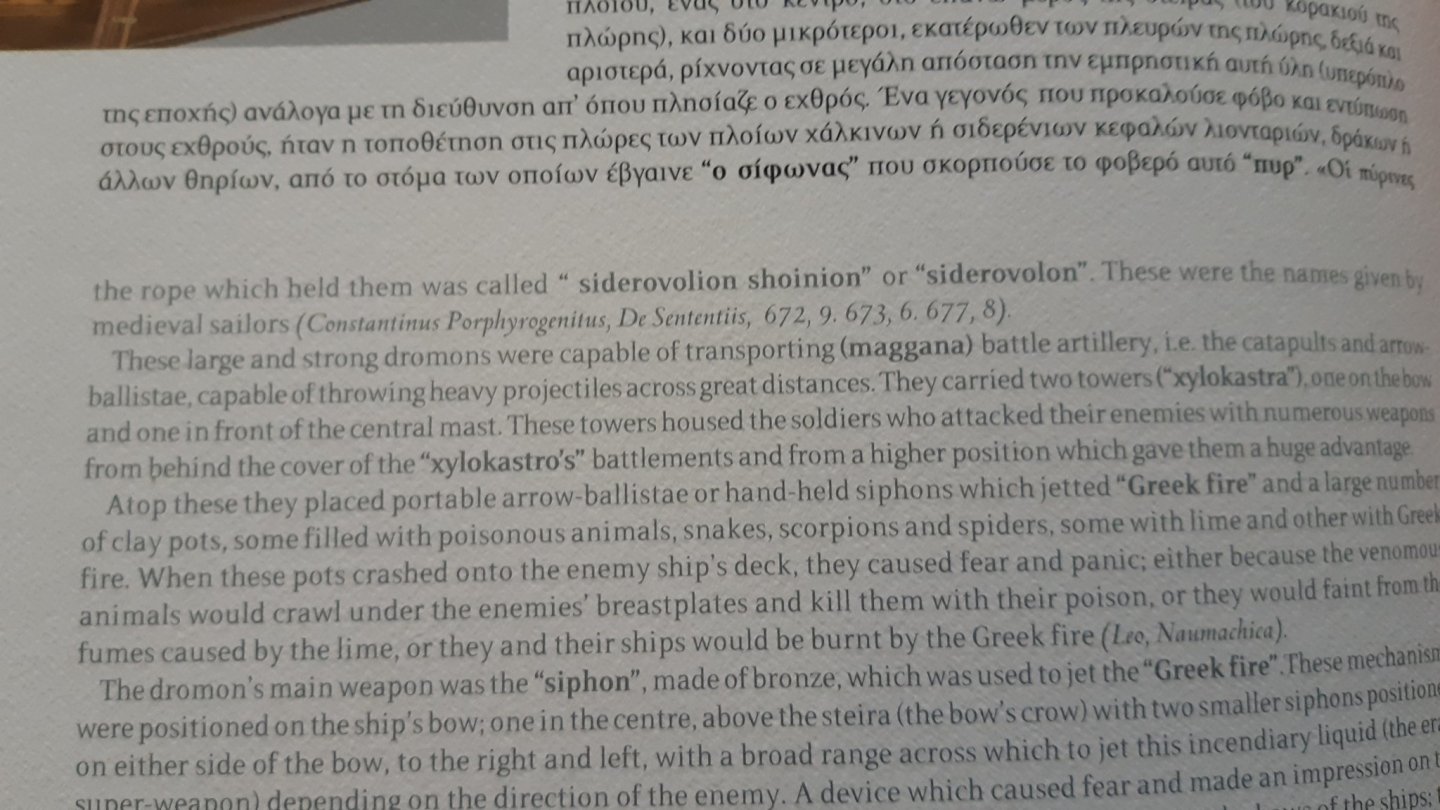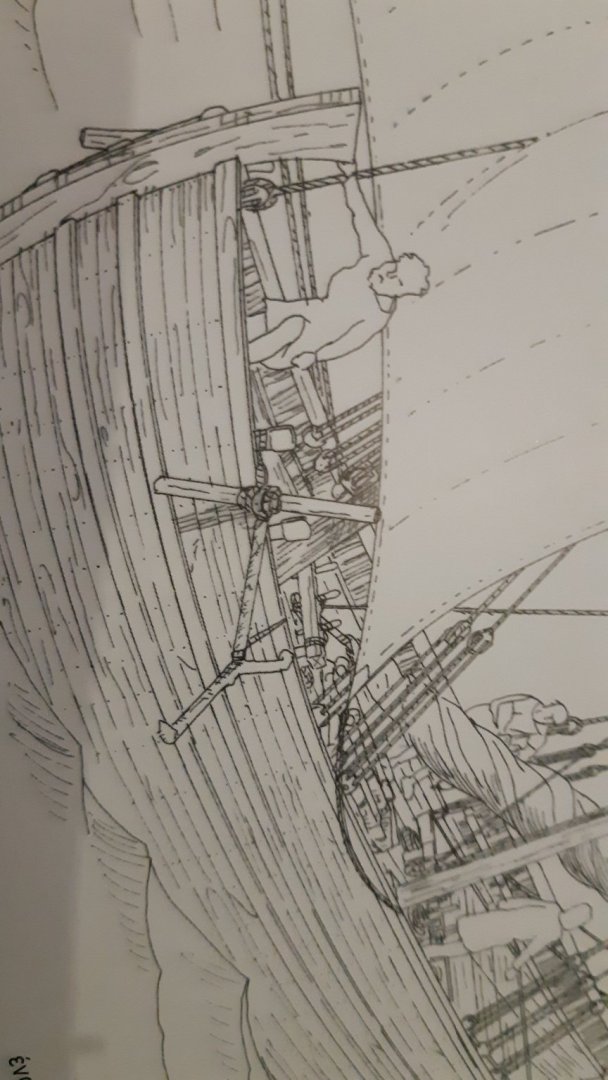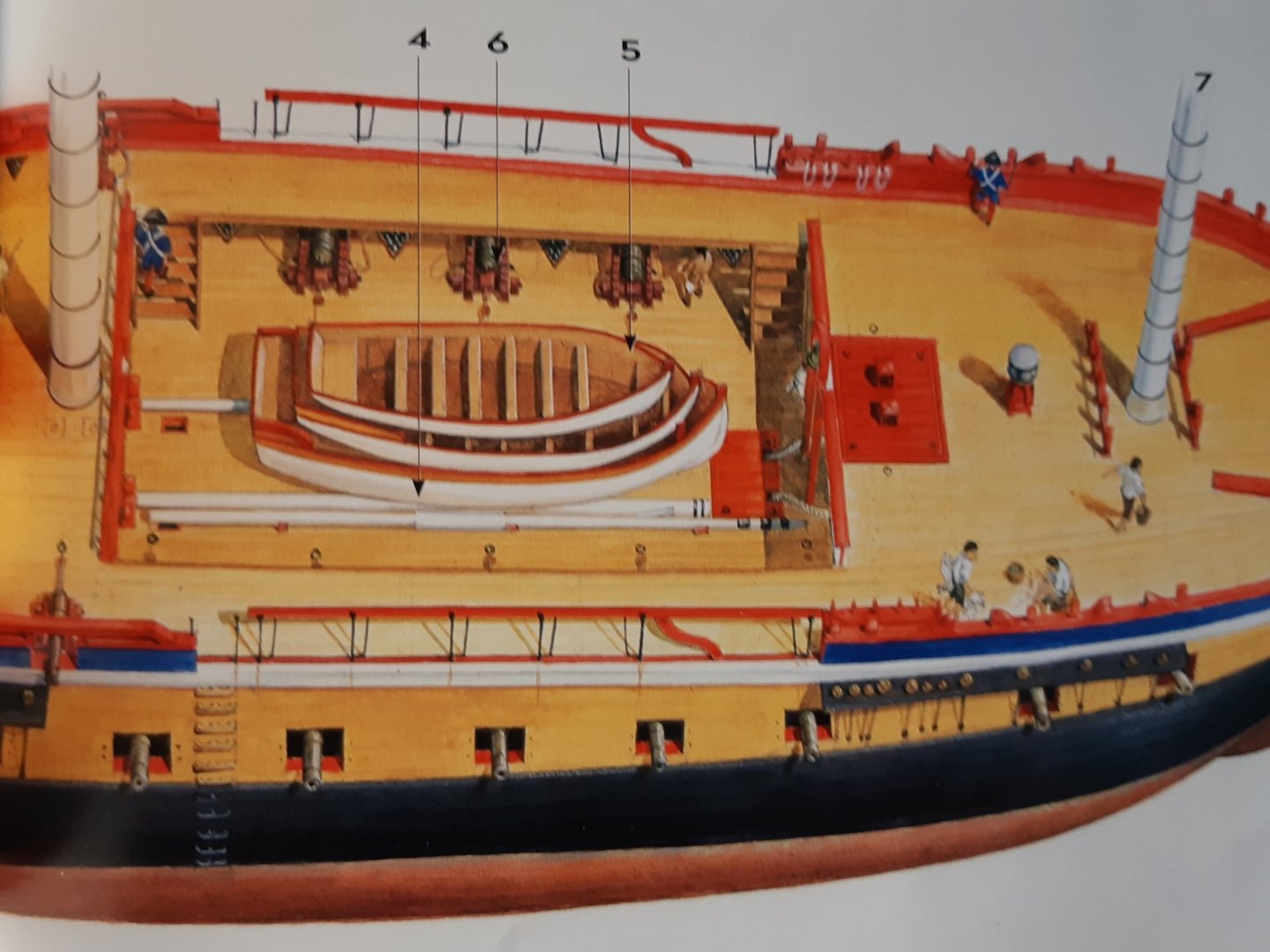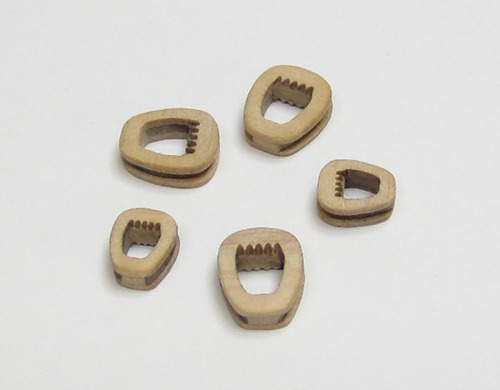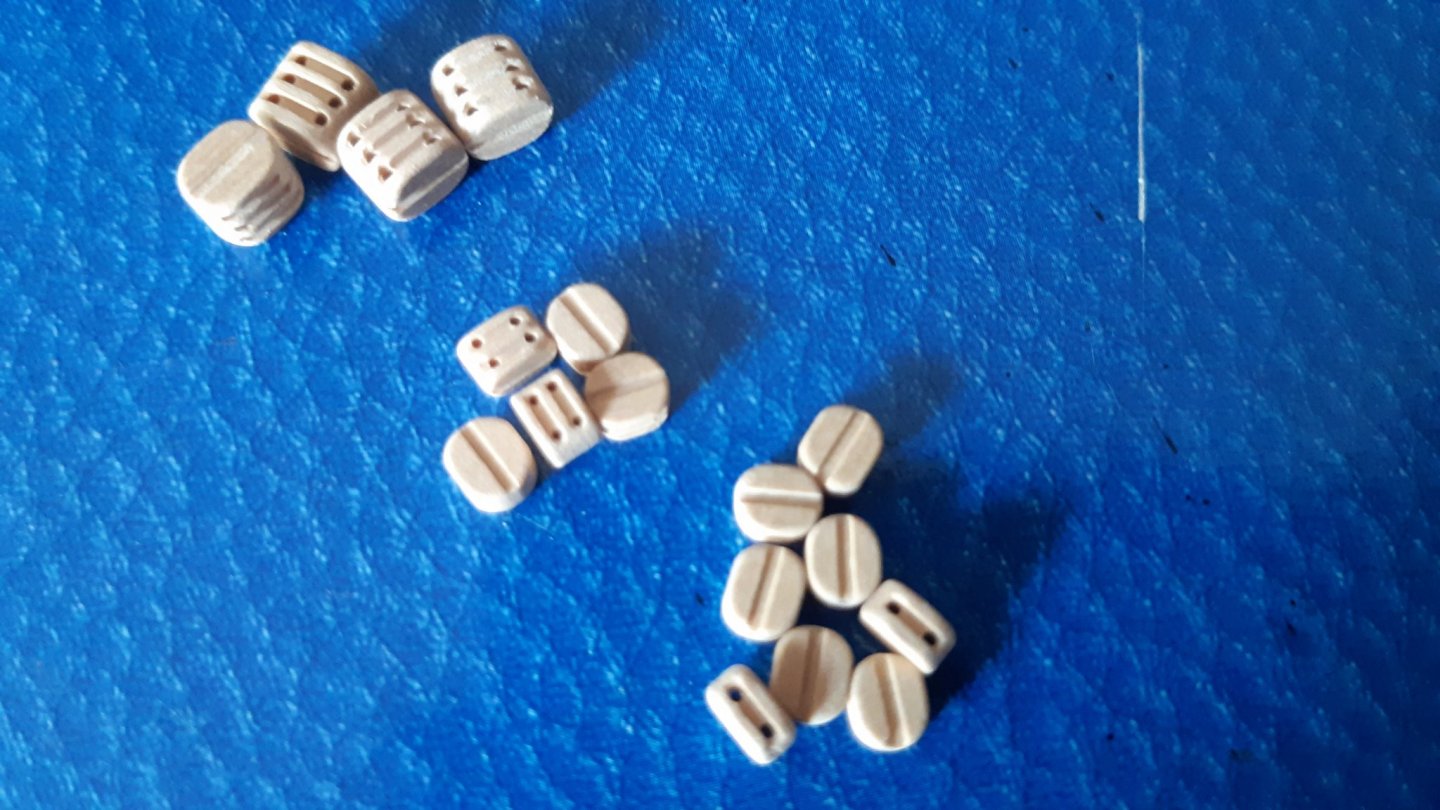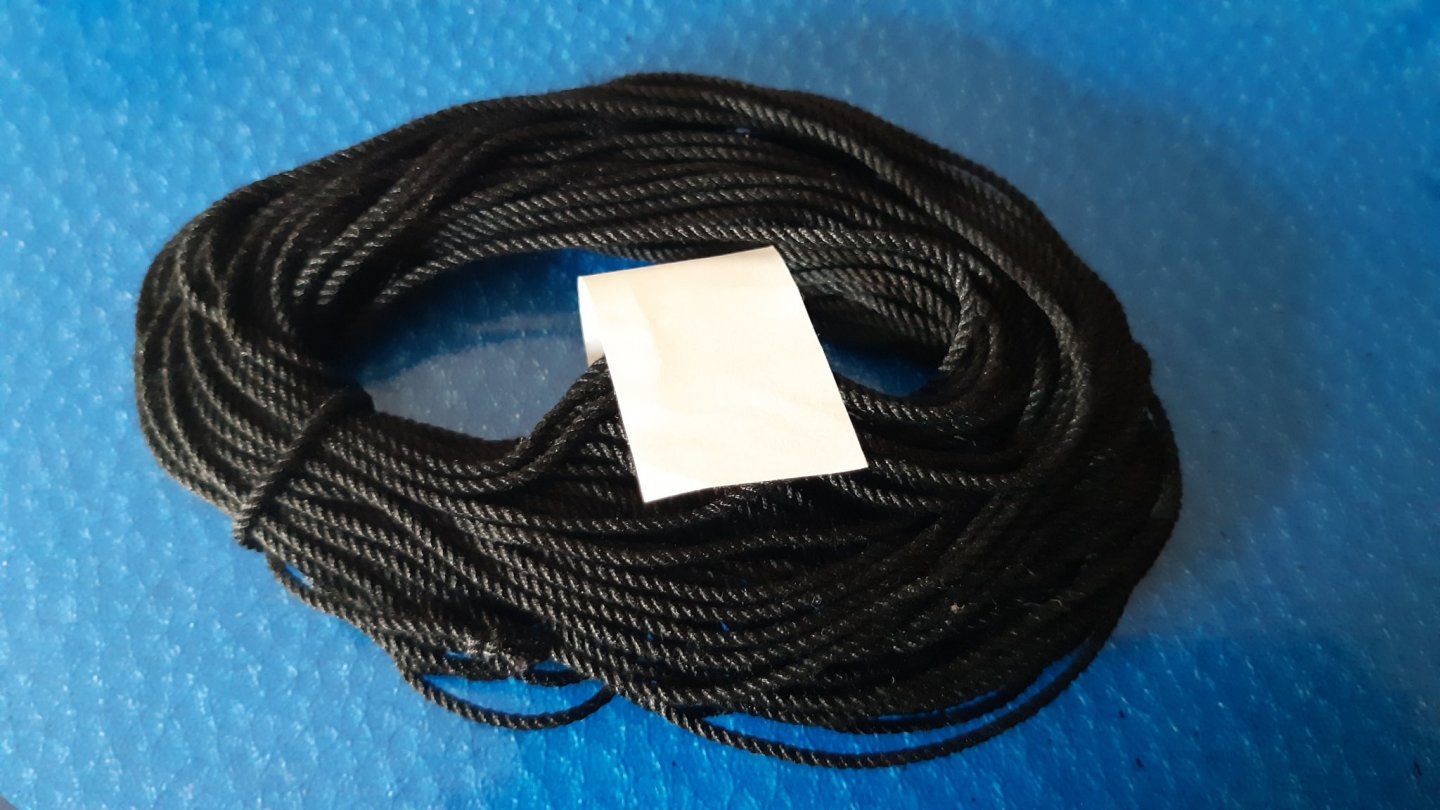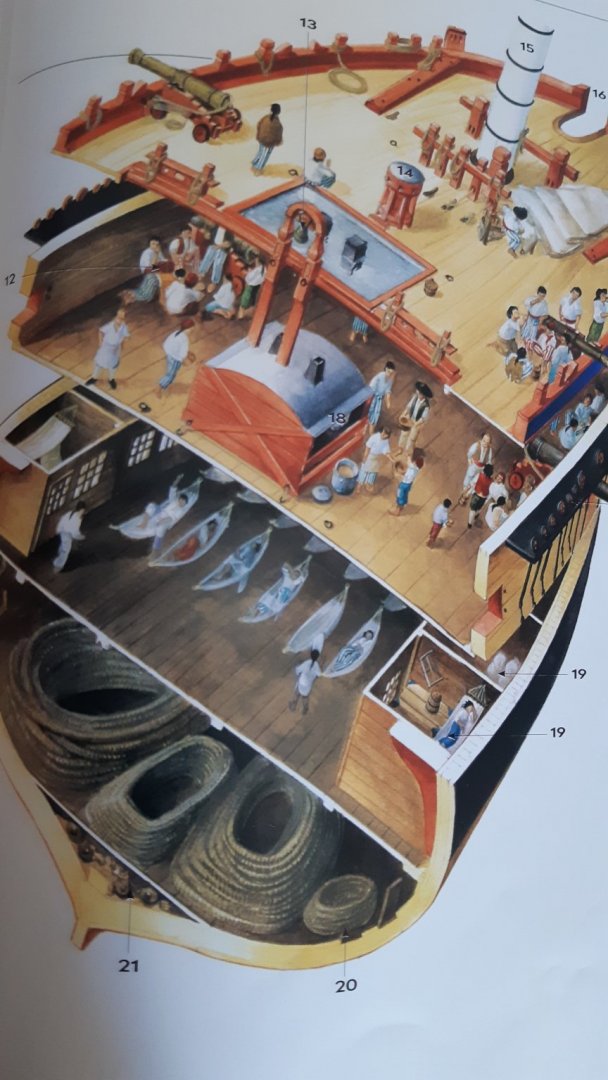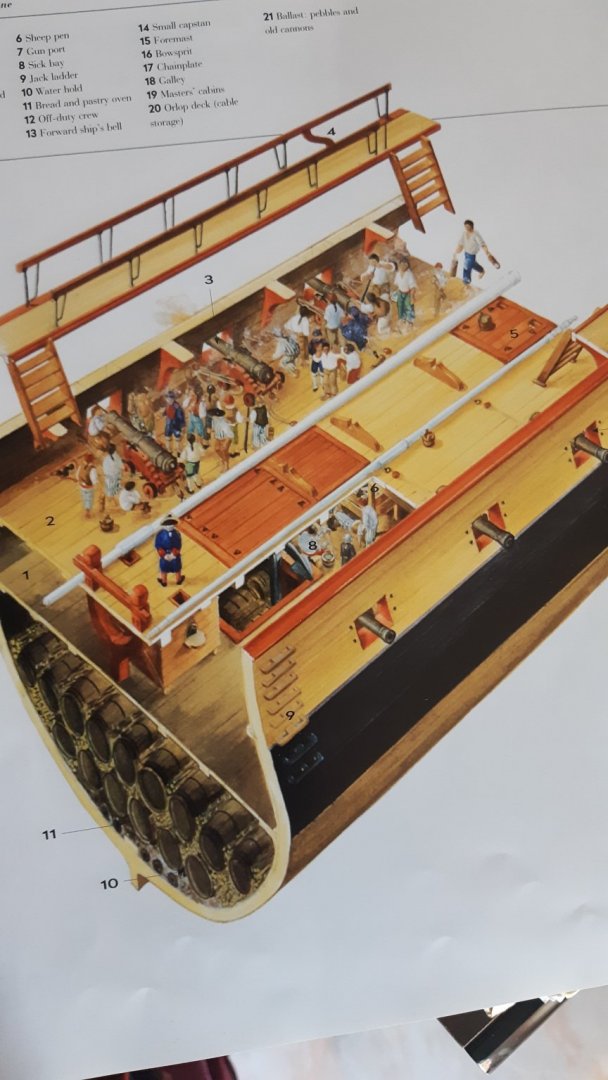-
Posts
1,232 -
Joined
-
Last visited
Content Type
Profiles
Forums
Gallery
Events
Everything posted by MESSIS
-

Correct flag
MESSIS replied to MESSIS's topic in Discussion for a Ship's Deck Furniture, Guns, boats and other Fittings
@Blue Ensign thank you. I had the impression that the red ensign is for merchant and passenger ships. At least this is the way it is today. But as you just said, then, back in the 18th century were all, white, red and blue ensign, Royal Navy ensign. Note that onboard of the R.Caroline was the royal family and the king him self. Christos -

Correct flag
MESSIS replied to MESSIS's topic in Discussion for a Ship's Deck Furniture, Guns, boats and other Fittings
Thank you Dirk. I wasnt sure. The yacht there is before 1800.... is some 1750+. -
I have the impression that, the flag on this magnificent painting of J.Cleveley the Elder, it may be not the one used at that time on Royal Caroline. The royal yacht could not have the civil navy ensign flag, since it belonged to the Royal Navy. I guess that the correct flag would have been the the White Ensign/St George's Ensign, of the Royal Navy. Is that so?
-
Its an incredible piece of work! Out of any aspect, historically, engineering wise (including ecxellent model work) and last but not least, as an art work! So Steven, has as a fact and by far, succeeded an extraordinary (dear to say scientific) achievement in our hobby world, in the fascinating world of model shipbuilding! Congrats my friend. Looking forward for your end result.
-
Yes Steven I came on it when I was building my Drakar... the kit of amati hat a chain for the anchor... so I have looked it up. Still I have found out that the vikings used a rope tide on the chain which was attached on the anchor. Christos
-
Yes you are right. Remember I had mentioned that in my earlier post. Chain is definitely not out of question, I agree. Vikings are an evidence of the use of chains for anchoring. And is well known , that they were at those days, --after the 941 disastrous attack on Constantinople by Rus- part of the Imperial Guard, or the guard it self, as they arrived to Konstantinoupolis with their Drakars through the russian rivers. But still the problem remains hard to solve.
-
They dont just look good... they look and are outstanding byzantine design iron work anchors!
-
Steven, I have mentioned it again. This is a post stamp edition from the Greek post office, of model ships, by E.Grypiotes. There is a Δρόμων which the historical authenticity is much doubted... still look how he describes in his list the anchor, item nr8. It has a rope, where in an another of his models (of a previous historical time), a Hellinistic πολυήρης of the 4th century, has a chain. There is also a text, describing among other things the anchors, making a reference of Constantinus Porfyrogenitus script. Talking about the rope which held them (the anchors), of which there is also English text given in the book it self.
-
Παλαστή, παλαιστρή, palaistra/ai= 74.8 mm (ancient greek -equals 4 daktyloi/ δακτυλοι). It was also called δώρον. Its an anthropometric unit, it refers to the hand span (the small one), the palm... still its not the open one, the big one, as spithami. σπιθαμή/αι spithami/ai equals 18cm its an anthropometric unit again... it refers to the open span, the big one, see picture below. We still use today the word σπιθαμή... its a modern greek word... of course we use it arbitrary... its not a measurement unit anymore, either the imperial unit system, we have the MKS since 1960 as we had stopped being a British Crown Colony. If you need anything on the ancient greek units just tell me... its been a long time since I was having ancient greek in gymnasium, but my wife keeps still my son's school books ( he is 31 now) lol lol.
-
Now I get your point! That wasthe catch all the time! Tough... really tough. And Dr Damianides writes -as you already know- no anchors and no rigging was found in most wrecks because they were sunk on purpose! So your issue seems to remain unsolved deu to lack on hard evidence. You are right..."further and further into the unknown". Yes correct indeed!
-
Steven have a look at what I found in one of my greek books. Its an artistic interpretation of a wreck in Serce Limani found 1973 from INA of Texas A&M University. According to the author Dr Damianides, it was a small comercial ship of the 11th century 15 m long. 20% of that ship was recovered. Look the anchor... its the iron anchor you have already prepared and it seems to have a rope. I dont know how much of use is that to you. I though it want hurt posting it to you.
-
Ps. "Killick" it was allready a well known art in Homeric era of binding a stone on the anchor in order to help holding it down.
-
Steven your most dialectical thoughts made me go in my Homeric naval dictionary and look up for the word σιδηροβόλο. But still could not find anything. I also had a look at the Theodosious Harbour wreck indexes, searching for anchors or chains. Again there wasnt anything much. Though stones and stone anchors were mentioned. Perhaps that solved the holding down of the anchor. What chains concerned, we still know that chains did exist. The bay or harbour was closing by a chain. Chain in greek is αλυσίδα, in the middle alter called άλυσος, of which in connection with anchoring, I could not find any mentions. Lack of Hard evidence is a problem. Surely is a long shot just to say, If the Vikings did used chains for their anchors, why not the byzantines as well? Its a hard issue what you got there. Still through my last post, based only on the linguistic aspect, I remain loyal to the theory that the anchors were iron made and they had fibre ropes and not chains. Christos
-
Steven if I may add to this conversation, according to the linguistic point of view. Sidirobola written in greek σιδηροβόλα, its a combination of two words: σίδηρος=iron and βολή=shot from the verb βάλλω thst can mean both, shoot or thrown. You can take another example. πυροβόλο = greek word for gun, thats again a combi from πυρ=fire and again βολή.... that is shooting fire. Or πολυβόλο the greek word for machine gun thats πολύ=multiple and again βολή. Αεροβόλο air gun, αέρας= air, etc etc. Schoinia (σχοινιά) is definitely rope.No other interpretation can be possible to that. Etymology roots back to plant fibers, the wire ropes are called συρματoσχοινια σύρμα=wire. So schoinia siderobola means in my opinion ropes with which iron (iron anchors) were shooted (thrown). Christos
-
@Spike1947 I agree Richard.The scale is too small. Sadly I have decided more than a few times, ideas and items I had in mind to add to my model, not to do so, due to the size of the scale... even by the rigging of the cannons, I have compromised, instead of a proper cannons rigging, to that "symbolic" just one single rope, that the kit's instructions suggest. @mtaylorYes you are definitely correct about the walkway... so it was. The above illustration maybe is a little confusing, showing the walkway lifted up, in order to reveal the cannons on the cannon deck, while in reality its (the walkway)actually, as you mentioned, blending with the fore and aft decking. This illustration I believe shows it clearer.
-
Happy new year to all. Rigging is about to start. Hermione’s kit needed some upgrading also in the lines and blocks issues. Concerning the black standing rigging lines, diam. 0.15 mm, 0.5mm and 0.8mm, those have been replaced by I purchasing rope of fine quality from Modellbau Tagelgarn. I have also upgraded the diameter size of them upwards, by replacing the 0.15mm with a 0.5mm, the 0.5 mm diameter rope with a 0.8 mm and the 0,8 mm with a 1.2 mm diameter. It looks better this way, because the kit’s lines look thicker than the good quality rope from M.T.. For the hemp running rigging am going to use the lines in the kit, the quality of those isn’t so bad and also 0.15 and 0.25mm diameters are too thin to worth an upgrade. Concerning the blocks and the closed hearts, Syren Ship Model Co. had provided me with fine quality single, double, triple blocks and closed hearts. Again, I went on 5mm instead of 4.5 for the single block, the 6mm double remained and what the triple blocks concerned, there are just two for the anchors, I used a 6mm instead of 7mm. Lastly I purchased 12 pieces of 7mm closed hearts of excellent quality, which they were delivered from Syren Moel Co for me to assemble. The dead-eyes remain the ones of the kit.
-
Richard happy new year. I have just now saw your log.... sorry. I believe also as @mtaylor that the French of the period didn't used hammocks (at least in frigates). On the replica it's a walkway but I still dont believe that either. I tried hard to find drawings or other information over hammock rails or even the walkway rails of the 1779 ship, but with no success. So I decided to place only a plain rail... thinking that due to the small scale, is safer doing less than doing more 😊. Still, I suggest trust your feeling, if you feel like hammock rails did exist, go ahead. In what we lack information, doesnt mean it could have not existed. Its possible that those hammock rails were there. Am sure that will add to your model. Christos
-
Steven am sadly watching Australia burning. Hope soon the nightmare ends. Wish you, your family and all the people in Australia strength and patience. Christos
-
So its Christmas time and I have closed down the shipyard. Everybody can now welcome their grandsons and all their beloved ones. This is what I will be doing myself. But still.... I have let a small part of the shipyard open... maybe -when everybody sleeps- I get a chance to work occasionally on block staining and the fore mast shrouds... who knows, maybe I catch Santa coming down through the chimney and have together a glass of Monkey Shoulder single malt scotch! so... merry christmas and a happy new year to all...
About us
Modelshipworld - Advancing Ship Modeling through Research
SSL Secured
Your security is important for us so this Website is SSL-Secured
NRG Mailing Address
Nautical Research Guild
237 South Lincoln Street
Westmont IL, 60559-1917
Model Ship World ® and the MSW logo are Registered Trademarks, and belong to the Nautical Research Guild (United States Patent and Trademark Office: No. 6,929,264 & No. 6,929,274, registered Dec. 20, 2022)
Helpful Links
About the NRG
If you enjoy building ship models that are historically accurate as well as beautiful, then The Nautical Research Guild (NRG) is just right for you.
The Guild is a non-profit educational organization whose mission is to “Advance Ship Modeling Through Research”. We provide support to our members in their efforts to raise the quality of their model ships.
The Nautical Research Guild has published our world-renowned quarterly magazine, The Nautical Research Journal, since 1955. The pages of the Journal are full of articles by accomplished ship modelers who show you how they create those exquisite details on their models, and by maritime historians who show you the correct details to build. The Journal is available in both print and digital editions. Go to the NRG web site (www.thenrg.org) to download a complimentary digital copy of the Journal. The NRG also publishes plan sets, books and compilations of back issues of the Journal and the former Ships in Scale and Model Ship Builder magazines.

